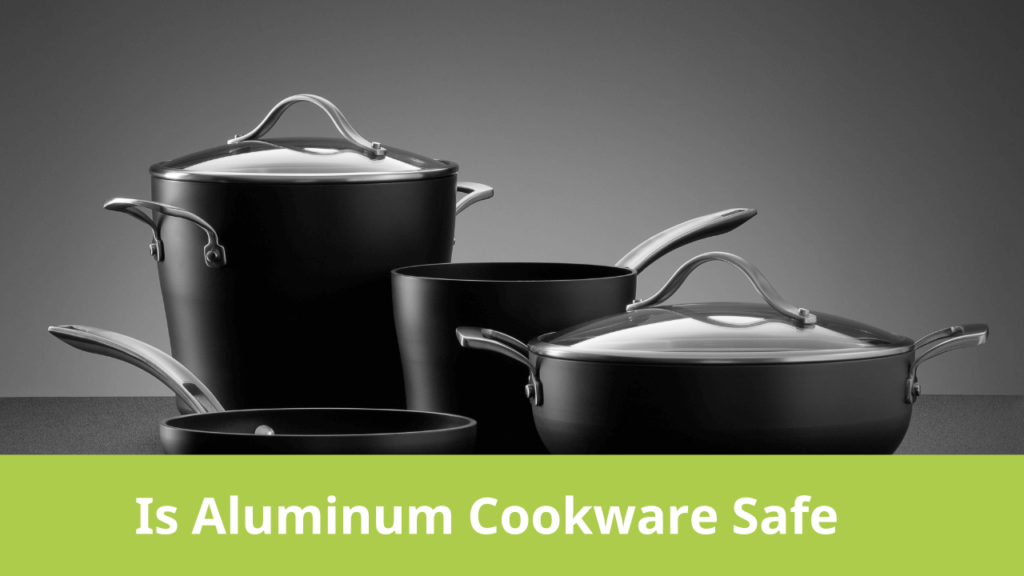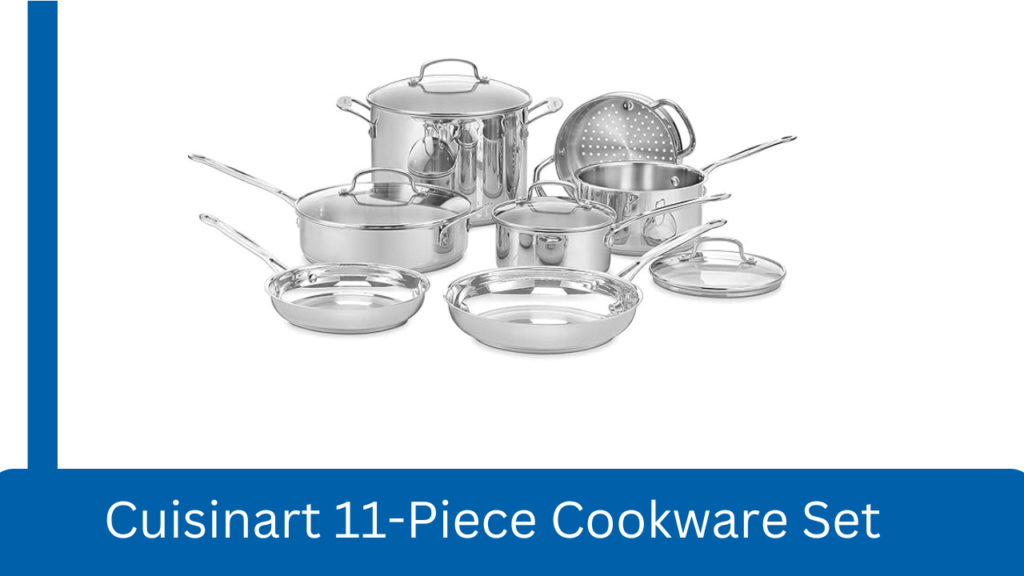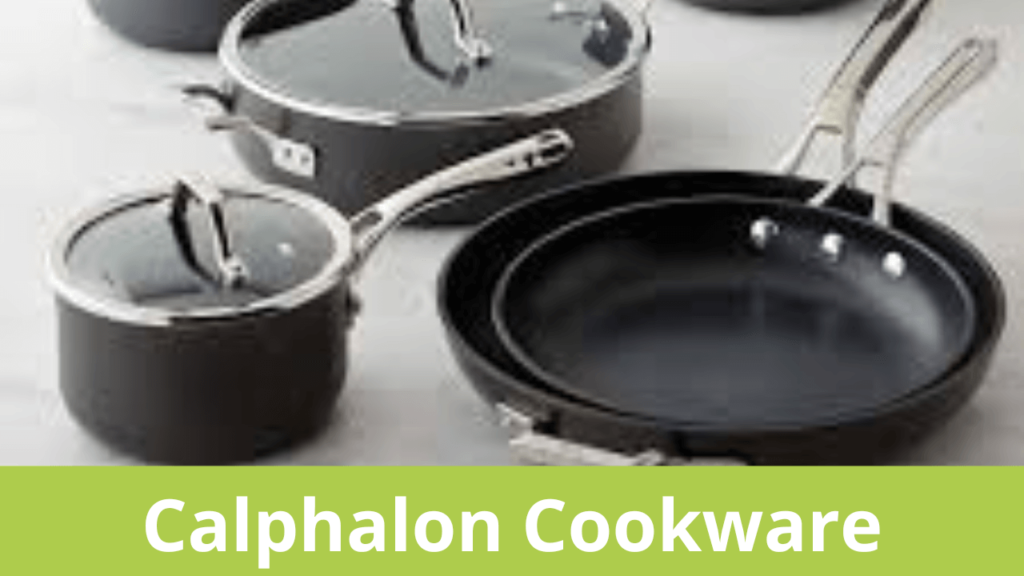When I first started cooking, I bought a set of aluminum cookware because it was lightweight and affordable. Over time, I began wondering if using aluminum cookware was safe for my family’s health. To clear my doubts, I decided to do thorough research and share what I’ve learned with you. This blog is a combination of my personal experience, facts, and easy-to-understand explanations about aluminum cookware safety.
What is Aluminum Cookware?
Aluminum cookware is made from aluminum metal, known for being lightweight, durable, and a great heat conductor. You’ll often find it in pots, pans, and baking sheets. Aluminum cookware is either:
- Uncoated (raw aluminum): Often used in commercial kitchens but can react with acidic foods.
- Coated or anodized: This type has a non-stick or anodized layer, making it less reactive.
My Concerns About Aluminum Cookware
When I first used aluminum cookware, I loved how quickly it heated up and how easy it was to handle. However, after a few months, I noticed my pans getting scratched, and I began questioning whether small amounts of aluminum were getting into the food. Here are some of the questions I had:
- Does aluminum cookware leach metal into food?
- Can aluminum exposure cause health issues?
- Are anodized and coated options safer?
What Science Says About Aluminum Cookware Safety
After digging into research, I found a mix of opinions. Here’s a simple breakdown of the facts:
- Leaching of Aluminum
- Aluminum can leach into food, especially when cooking acidic foods like tomatoes or lemon-based dishes.
- Higher temperatures and scratches on uncoated cookware increase the leaching.
- Health Risks
- Small amounts of aluminum are generally considered safe.
- However, excessive exposure has been linked to health conditions like Alzheimer’s disease. It’s important to note that no conclusive evidence directly connects aluminum cookware to these health issues.
- Anodized Aluminum Cookware
- Anodized aluminum cookware has a protective layer that prevents leaching.
- This option is widely recommended for safer cooking.
My Testing with Aluminum Cookware
To test these concerns myself, I used three types of cookware: raw aluminum, coated aluminum, and anodized aluminum. Here’s what I noticed:
| Type of Cookware | Pros | Cons |
|---|---|---|
| Raw Aluminum | Affordable, good heat conduction | Reacts with acidic foods, leaching risk |
| Coated Aluminum | Non-stick surface, easy to clean | Coating can wear off over time |
| Anodized Aluminum | Durable, minimal leaching risk | More expensive |
Steps I Took to Ensure Safety
Here are some practical tips I started using to make aluminum cookware safer for my family:
- Switching to Anodized Aluminum
- I replaced my old raw aluminum pots and pans with anodized ones.
- They’re slightly more expensive but worth the investment for peace of mind.
- Avoid Cooking Acidic Foods in Aluminum
- I stopped cooking tomato sauces, citrus-based dishes, or vinegar-heavy recipes in aluminum pans.
- Instead, I use stainless steel or cast iron for these meals.
- Using Wooden or Silicone Utensils
- To prevent scratches on the coating or anodized layer, I switched to wooden or silicone cooking utensils.
- Regular Maintenance
- I hand-wash my aluminum cookware with mild soap and avoid abrasive scrubbers.
- This helps extend the life of the coating and anodized layer.
Advantages and Disadvantages of Aluminum Cookware
Advantages:
- Lightweight and easy to handle.
- Excellent heat conductivity for even cooking.
- Affordable and widely available.
Disadvantages:
- Raw aluminum can leach into food.
- Coatings can wear off over time.
- Not ideal for acidic foods.
Alternatives to Aluminum Cookware
While aluminum cookware can be safe if used correctly, I also explored other cookware options:
| Cookware Type | Pros | Cons |
|---|---|---|
| Stainless Steel | Durable, non-reactive, versatile | Poor heat conduction without copper/aluminum core |
| Cast Iron | Adds iron to food, excellent for searing | Heavy, requires seasoning |
| Ceramic Coated | Non-stick, non-reactive | Coating can chip over time |
| Glass | Non-toxic, great for baking | Not suitable for stovetop use |
FAQs About Aluminum Cookware
1. Does anodized aluminum cookware last longer?
Yes, it is more durable and resistant to scratches compared to raw or coated aluminum.
2. Is cooking with scratched aluminum cookware unsafe?
If the coating or anodized layer is damaged, it increases the risk of leaching. It’s best to replace heavily scratched pans.
3. Can aluminum exposure cause Alzheimer’s?
Studies show conflicting evidence. The general consensus is that aluminum exposure from cookware is minimal and unlikely to cause Alzheimer’s.
My Final Thoughts
From my personal experience, aluminum cookware can be safe if used with care. I’ve found anodized aluminum to be the best option, as it minimizes the risks associated with leaching. However, for cooking highly acidic foods, I prefer stainless steel or cast iron.
If you’re concerned about aluminum cookware safety, consider switching to anodized options and following the safety tips I’ve shared. Cooking should be enjoyable and stress-free, and making informed decisions about your cookware can contribute to a healthier kitchen.
What’s your experience with aluminum cookware? Let me know in the comments below—I’d love to hear your thoughts!

Tuhin Ahmed is the expert voice behind What to Do Advisor. With a passion for simplifying cooking experiences, Tanvir offers practical advice on kitchen essentials, from appliances to cutlery. Through in-depth guides and product recommendations, Tanvir helps home chefs create efficient and enjoyable kitchens. Dedicated to making cooking accessible for everyone, Tanvir’s insights empower readers to turn their kitchens into their favorite space.



